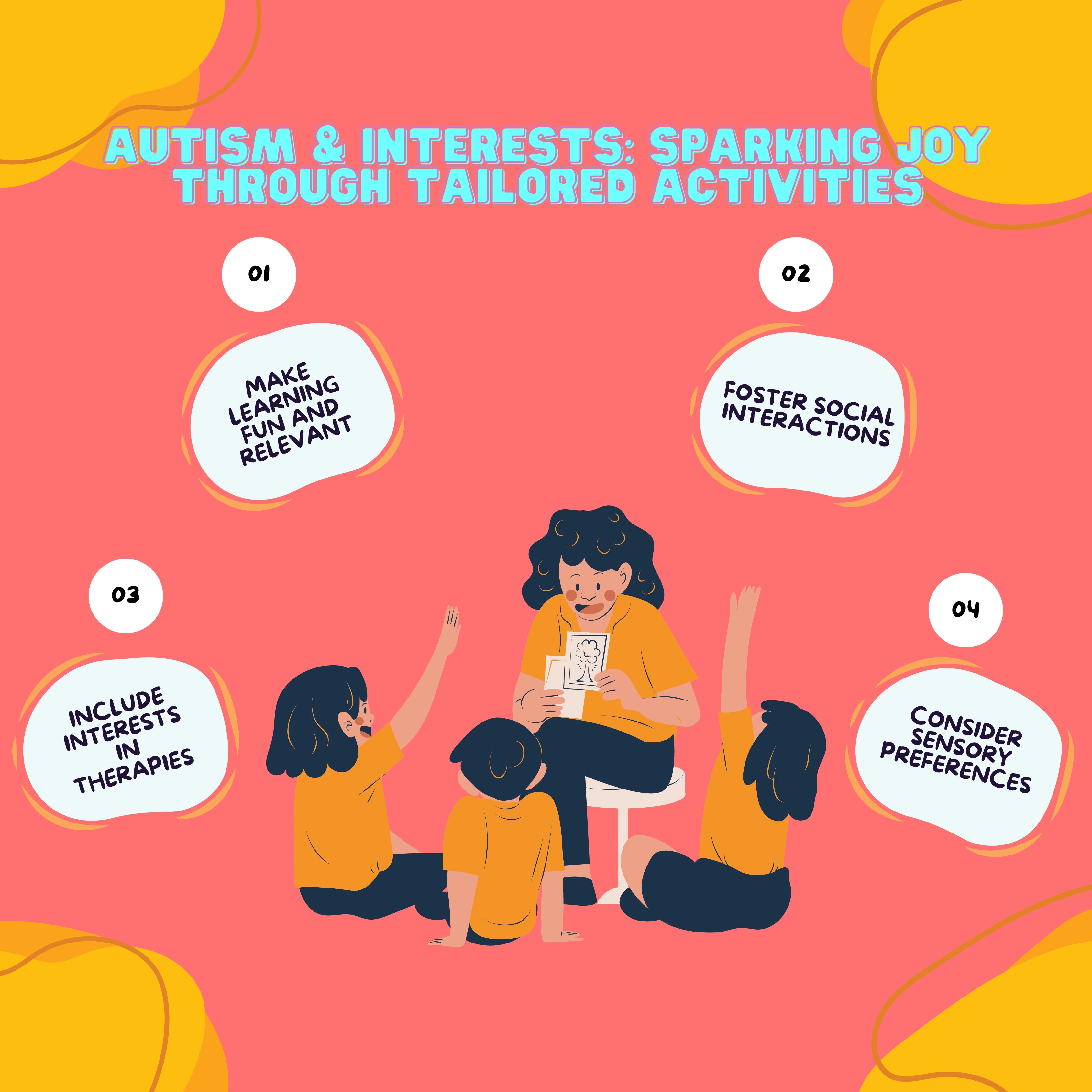Autistic children can display astonishing capabilities and intense interests that, when properly guided, can bring significant joy and accomplishment. Today, we're diving into the world of individual interests and how incorporating them into your child's routine can revolutionize their engagement, skill development, and overall happiness. This unique approach not only encourages your child's personal development but also stands as a testament to the beauty of neurodiversity.
Unlocking the Potential of Individual Interests
Autistic children frequently exhibit profound enthusiasm and focus in certain areas, demonstrating an intense desire to delve deeper and engage extensively with these specific interests. These interests can range from dinosaurs and trains to music, patterns, or a particular branch of science. Encouraging these interests is not just about indulging your child's passion - it can also become a powerful motivational tool for learning and growth.
Benefits of Utilizing Individual Interests
When you incorporate these interests into your child's activities, they're more likely to be engaged and often demonstrate impressive knowledge absorption. This method also helps boost self-esteem, as they can become experts in their areas of interest and this accomplishment can help them feel valued and capable.
Tips for Incorporating Individual Interests in Daily Activities
1. Make Learning Fun and Relevant: Turn their interests into learning opportunities. If your child loves space, turn a simple math problem into a mission to Mars. This makes learning less abstract and more appealing.
2. Foster Social Interactions: Use these interests to foster social interactions. For example, if your child loves Legos, consider arranging a play date or a day care that has a place where children are interacting with Legos. This can help your child interact with others who share the same interest.
3. Include Interests in Therapies: Occupational, speech, or physical therapists can include your child's interests in their sessions, making the activities more engaging and beneficial. We had an ABA therapist that interacted with Andrew with board games and facilitated questions while playing like "what is this piece" or "Whose turn is it". This allowed Andrew to have a fun activity and improve his communication skills.
4. Consider Sensory Preferences: Many autistic children have unique sensory preferences. If your child enjoys feeling different textures, consider activities that incorporate this, like sculpting with clay or baking. Fidgets are also excellent toys to have.
Remember, the aim isn't to pressure your child into achieving some perceived norm but to make their journey through life as fulfilling and enjoyable as possible. We're not trying to change who they are; we're adapting our understanding and strategies to fit their unique minds.
Conclusion
Embracing the individual interests of autistic children presents a wonderful opportunity to foster their engagement, learning, and happiness. This practice not only respects their neurological differences but also celebrates them. And who knows? Today's dinosaur lover could be tomorrow's leading paleontologist!
Let's keep the conversation going! Share your stories of how you have harnessed your child's unique interests. Your experiences may inspire other parents, and together, we can create a more understanding and accepting world for our unique children.
Remember, when it comes to helping your child succeed, understanding, acceptance, and love are your most potent tools. Let's work together to create a world that doesn't just accommodate our children with autism but appreciates them for their unique talents and perspectives.


